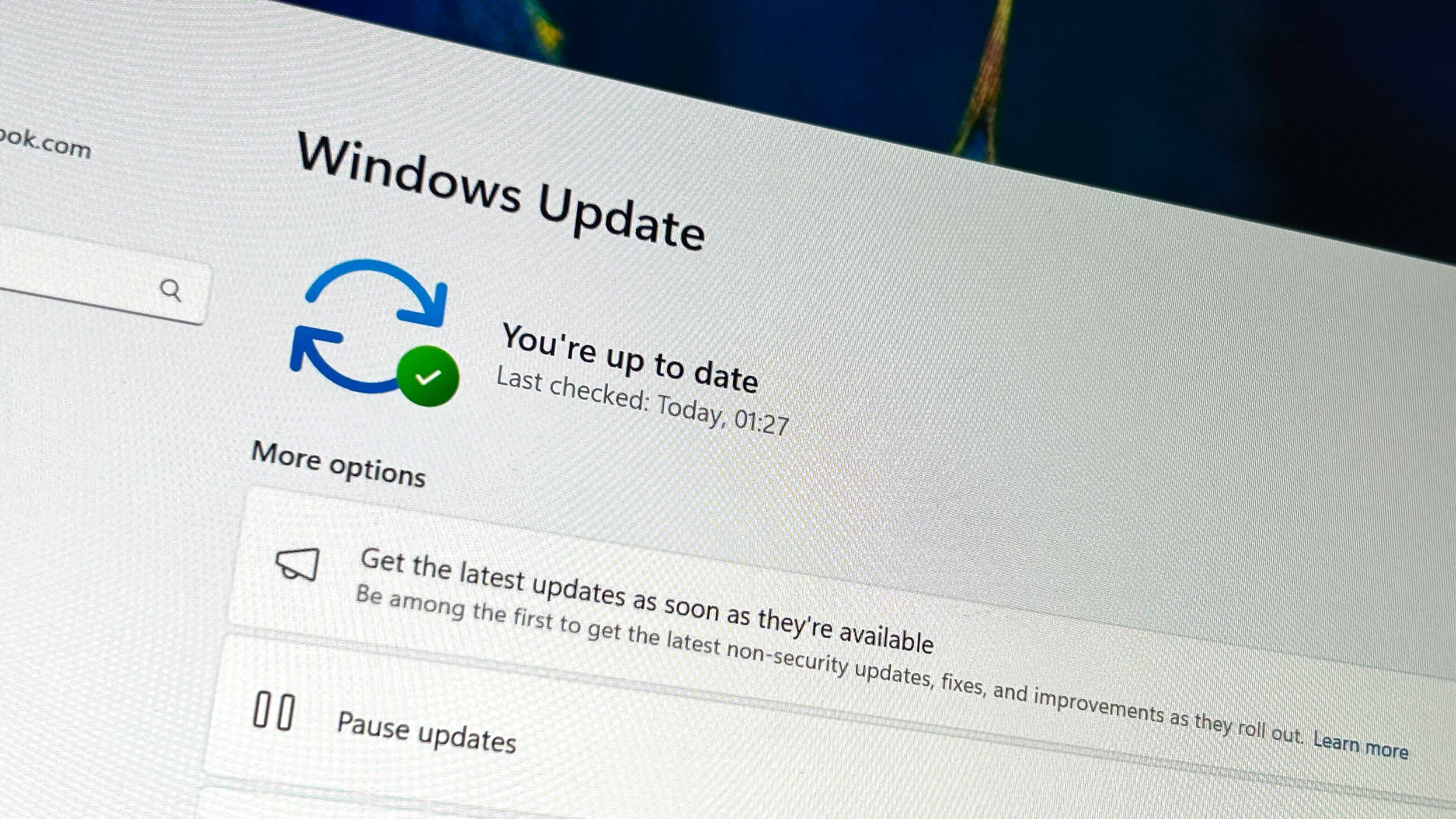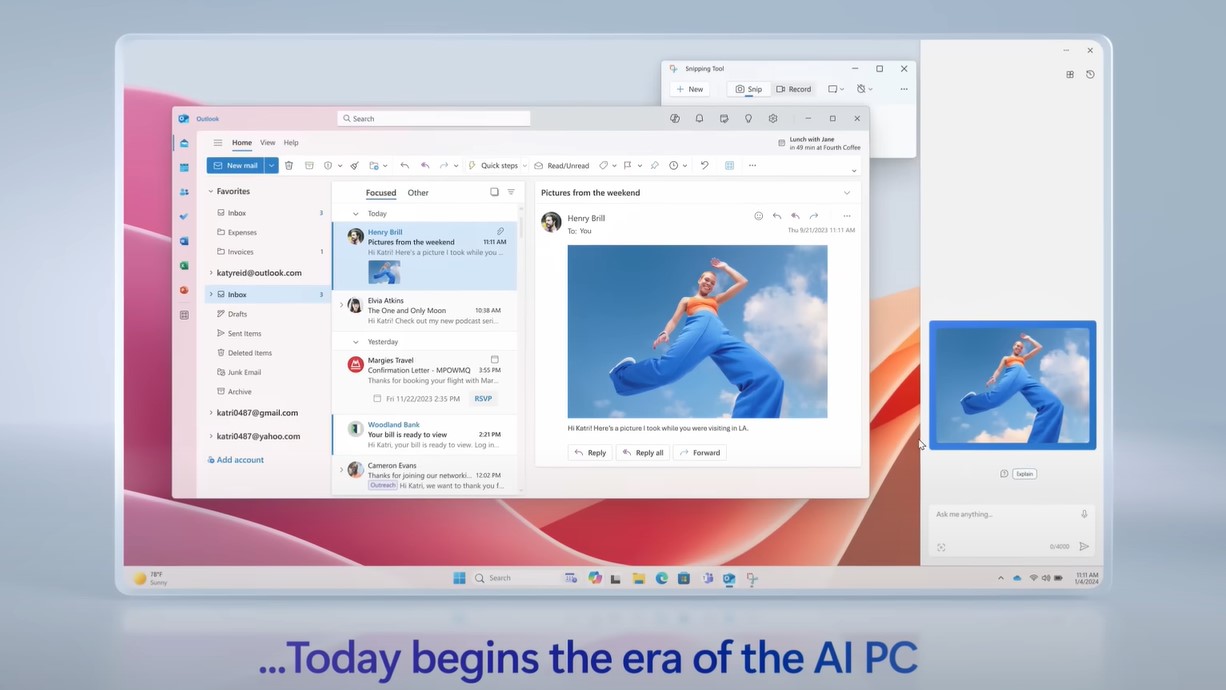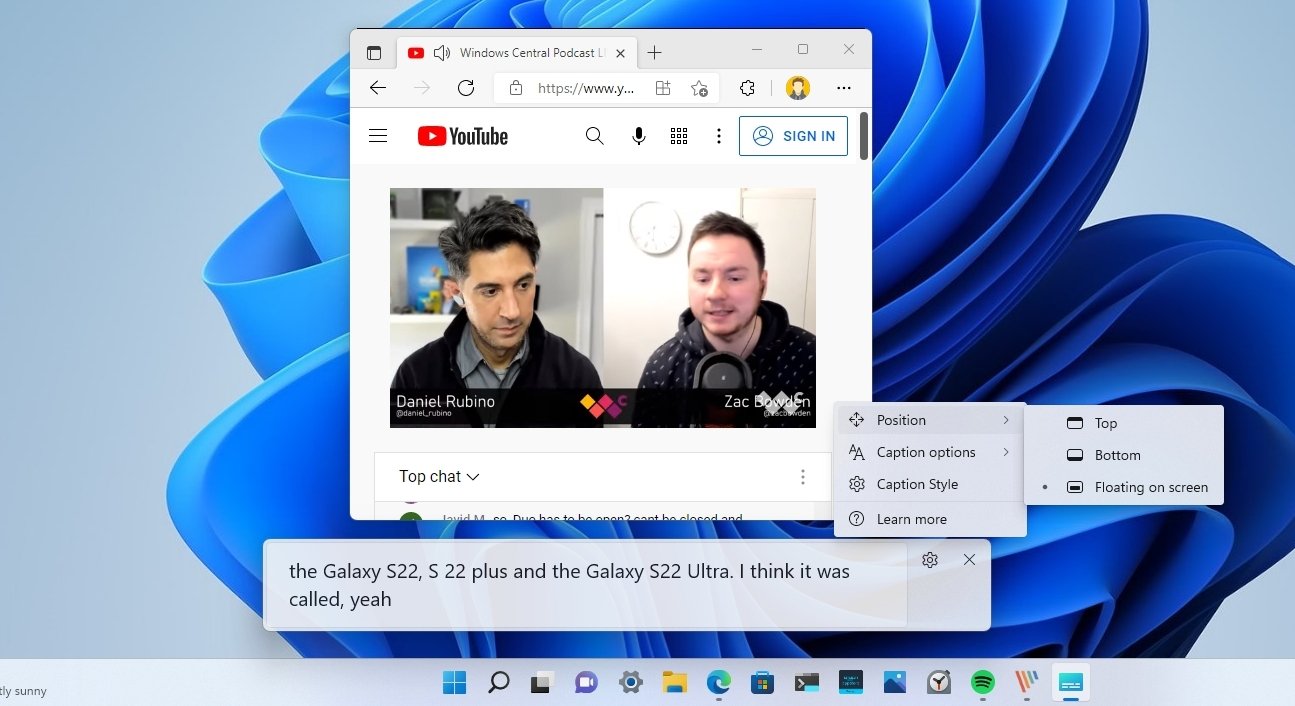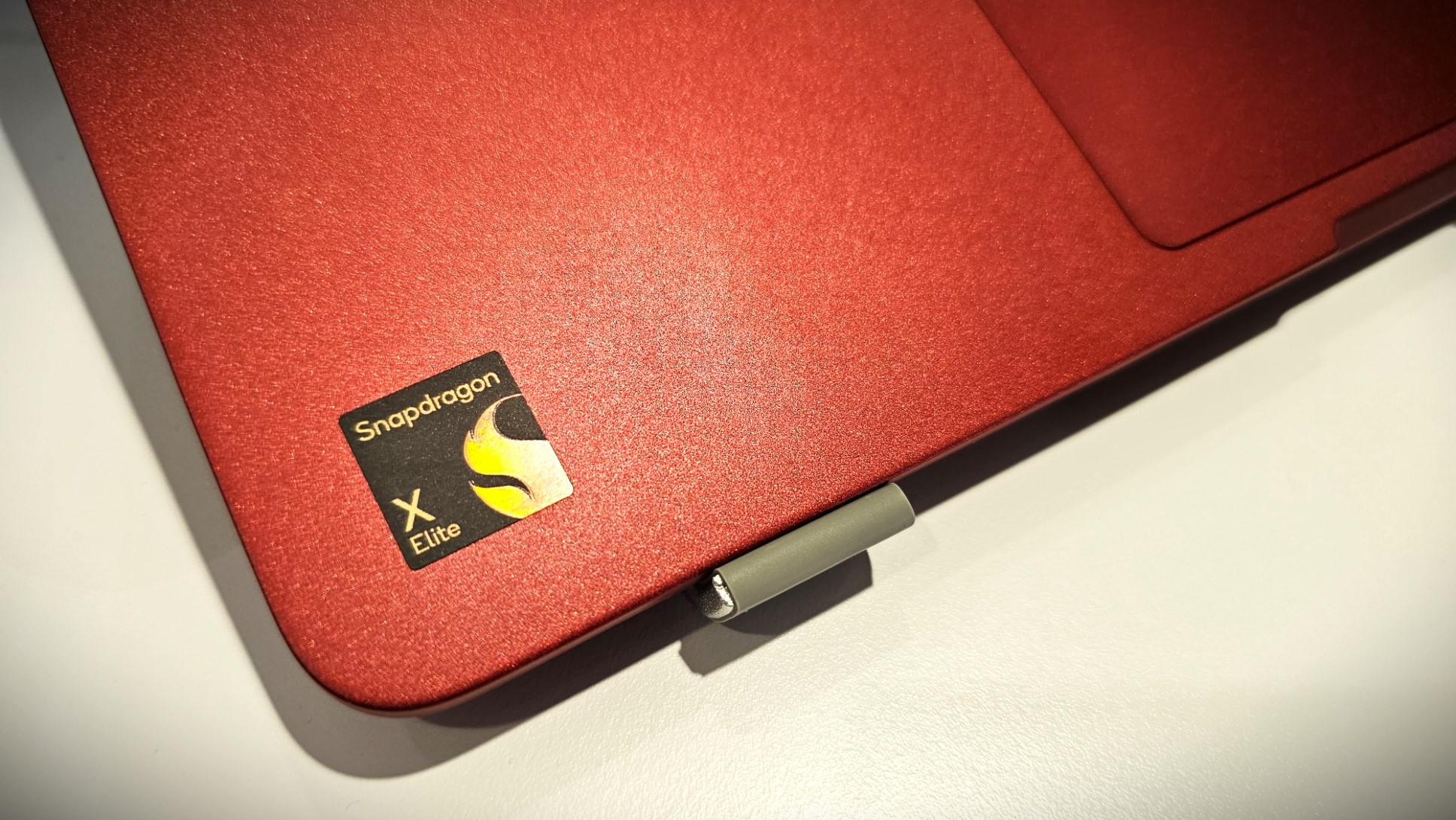What's next for Windows 11? Microsoft prepares early 24H2 release for Arm PCs and major AI update this fall
Windows 11 version 24H2 will ship first on new Arm PCs before rolling out to everyone later this year.
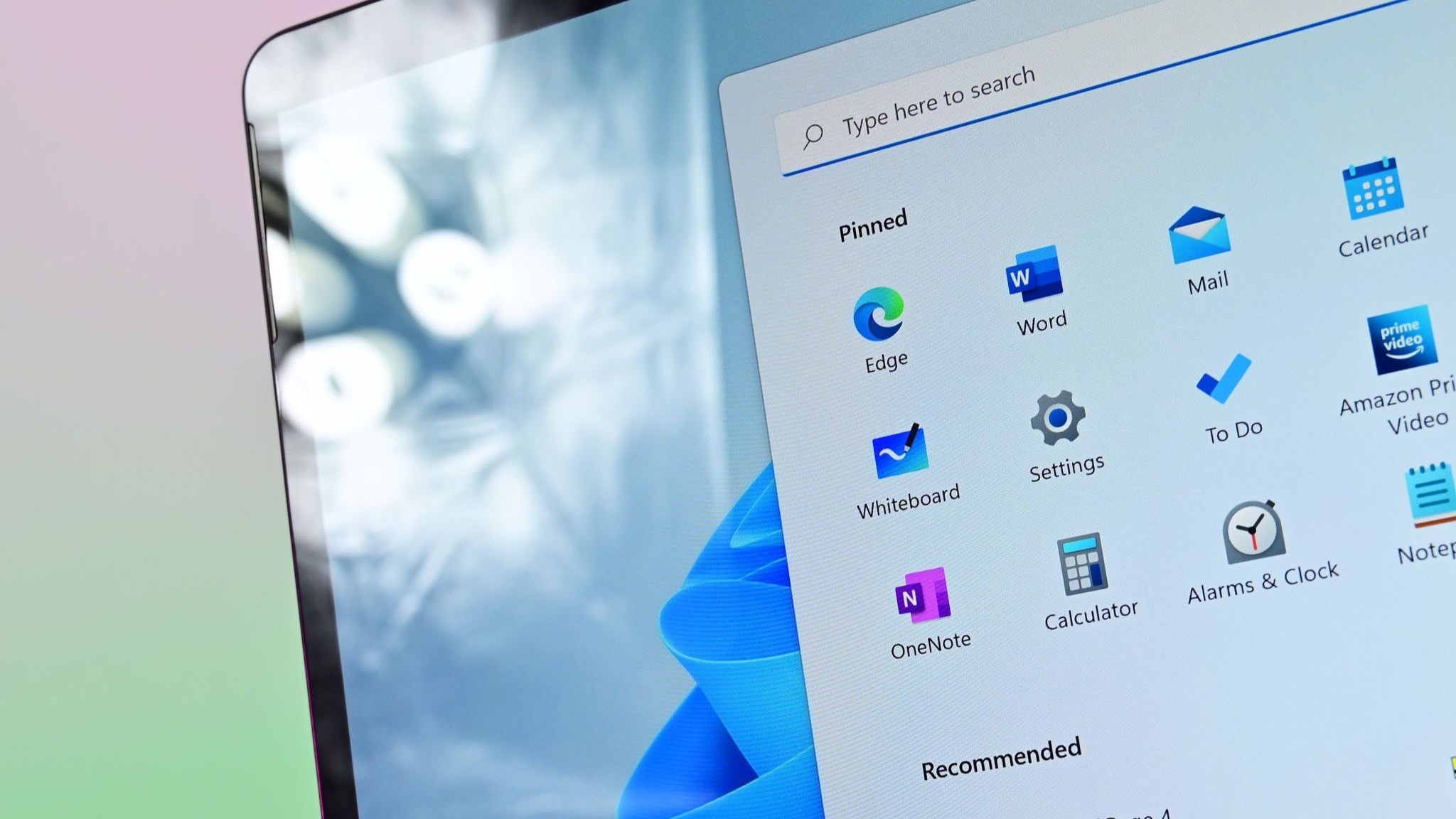
All the latest news, reviews, and guides for Windows and Xbox diehards.
You are now subscribed
Your newsletter sign-up was successful
Microsoft is gearing up for yet another busy year in the world of Windows, with upcoming AI PCs from all the major OEMs set to take center stage this summer. But what is the running order of things for version 24H2, how is Microsoft making Windows 11 ready for AI PCs, when is the next version of Windows 11 even coming, and why is it launching first on new Arm PCs?
That's a lot of questions, and I've done my best to answer them, based on information from sources that are familiar with the company's plans. Here's everything I know about what Microsoft has planned for Windows 11 in the year ahead.
The 24H2 roadmap
Starting with the schedule, Microsoft is just about ready to sign-off on a base build for the next version of Windows 11. According to my sources, Microsoft intends to release a finalized base build of Windows 11 version 24H2 to manufacturers in early April. This milestone is commonly referred to as RTM (Release To Manufacturers), which is when OEMs like Dell, HP, Lenovo, etc. receive a production-ready build of Windows to preload onto new hardware.
In the past, the RTM build was a near-final representation of the OS, but in the era of Windows as a Service that's no longer the case. For Windows 11, the RTM milestone is merely a point where the company deems the underlying platform stable enough to ship, regardless of whether or not surface-level features are ready. Being platform complete doesn't necessarily mean you are feature complete.
That means although an RTM build will be released to manufacturers in April, Windows 11 version 24H2 won't actually be done until later in the summer. This gives Microsoft time to keep working on the feature-set for this update, including some unannounced next-gen AI experiences that the company intends to unveil at an event on May 20.
This is very similar to what the company did when Windows 11 first launched in 2021. Microsoft unveiled the OS in June, released a base RTM build to OEMs (and Insiders), then continued to update the base build over the summer until Windows 11 was “ready” in October 2021.
With that said, the rollout of version 24H2 will be slightly different this time, as it's happening in two waves. The first wave starts in June, and the second wave is expected in September. This is because upcoming Snapdragon X Series Arm-based hardware requires version 24H2 to function, so OEMs looking to ship new hardware with those chips this summer have no choice but to use that release.
All the latest news, reviews, and guides for Windows and Xbox diehards.
The Arm devices that ship with version 24H2 will be missing a number of the upcoming next-gen AI experiences that Microsoft is planning to unveil on May 20, until later in the year when the version 24H2 update is deemed ready for the masses. I understand Microsoft intends to finalize and sign-off on these AI experiences and the overall feature set for Windows 11 version 24H2 in July and August.
Once sign-off is complete in August, the Windows 11 version 24H2 release will be made available as an update for existing Windows 11 PCs in September 2024. The Arm PCs that shipped with version 24H2 will receive a cumulative update that enables all the additional AI features and experiences that were finalized over the summer.
Here's a basic rundown of the Windows schedule for this year, as I understand it. Keep in mind, timeframes may slip:
- April 2024: Windows 11 version 24H2 reaches RTM milestone.
- May 2024: Microsoft holds Windows event to unveil new AI experiences.
- June 2024: The first Arm-PCs with version 24H2 preloaded start shipping.
- July 2024: Microsoft finalizes feature set for Windows 11 version 24H2.
- August 2024: Microsoft signs-off on day-one feature patch for version 24H2.
- September 2024: Windows 11 version 24H2 + new AI features releases to everyone.
So that's the order of things for Windows 11 over the summer, with lots of work still to do, and exciting announcements yet to come. But what exactly is Microsoft planning to unveil for Windows 11 in regard to new AI experiences on May 20? Here's what I know so far.
AI Explorer
"AI Explorer" (internal name) is the big headlining feature for Windows 11 version 24H2 when it comes to next-gen AI experiences. This feature enables the ability to turn everything you do on your computer into a searchable memory using natural language.
It incorporates a UI that lets the user scroll back through all the things they've done on their computer over the last handful of days, filtered by the user's search criteria. The AI is able to document and organize everything it sees on screen, including apps, sentences, webpages, documents, photos, videos, and more.
The user will be able to open AI Explorer to search for pretty much anything that they've done or seen on their computer. For example, a user could type “find that picture of a dinosaur that Sarah sent me on WhatsApp” and the AI will be able to bring up the exact moment when that image was shared with you.
AI Explorer is also able to analyze what's currently on-screen when opened, and offer suggestions based on what it sees. An example of this includes looking at an image on a webpage or in an app, and having the AI Explorer interface suggest removing the background of the image on screen using an app such as Paint.
Of course, this feature will be something users can turn off if they don't like it, or have privacy concerns. As I understand it, the data processed by AI Explorer is done on-device and not sent to the cloud, as the functionality of AI Explorer is capable of running offline.
Live Captions
Another new AI feature Microsoft is working on for Windows 11 is an update to live captions that enables the ability to translate different languages in real time on-device. In fact, the option to enable live captions was just promoted to the very top level of the Control Center on Windows 11, as Microsoft expects more people to start using it.
Generative AI
We've already seen a handful of new generative AI experiences make their way to Windows 11 over the last 12 months, including the ability to generate images in Paint, blur or remove the background in the Photos app, and Copilot for Windows itself. Right now, all of those generative AI experiences are cloud-dependent, but that's expected to start changing with version 24H2.
On PCs with supported NPUs (neural processing units), Microsoft will enable the ability to run some generative AI experiences on-device. Copilot will be one of the first AI features that can run locally, which should speed up performance for basic queries and reduce reliance on Microsoft's AI servers. Copilot will still be able to reach out to the cloud if needed.
I've also heard that Microsoft is looking to bring Copilot text generation to apps like Notepad and Phone Link SMS, which will function similarly to how it already does in apps like Word or Outlook.
The era of AI PCs and Windows on Arm
At the start of 2024, Microsoft teased that this year would be all about turning Windows into an AI-powered platform:
“... we will be ushering in a significant shift toward a more personal and intelligent computing future where AI will be seamlessly woven into Windows from the system, to the silicon, to the hardware. This will not only simplify people’s computing experience but also amplify it, making 2024 the year of the AI PC.”
But 2024 isn't just about AI, it's also about Windows on Arm. Specifically, it's about Qualcomm's new Snapdragon X Series SoC, which finally competes with Apple Silicon in performance and efficiency. Microsoft is so confident in Qualcomm that it intends to only offer Arm chips in its upcoming wave of consumer Surface Pro and Surface Laptop hardware, which will be unveiled on May 20.
Dell, HP, Lenovo and many other big name OEMs are also on-board to start shipping new Arm hardware this summer, all preloaded with Windows 11 version 24H2 and ready for the upcoming wave of next-gen AI features. Qualcomm's chips have the most powerful NPUs on the market currently.
Microsoft's May 20 event will be the true beginning of the AI PC era, as that's when the company is planning to finally unveil its complete vision for AI-powered Windows 11 PCs.

